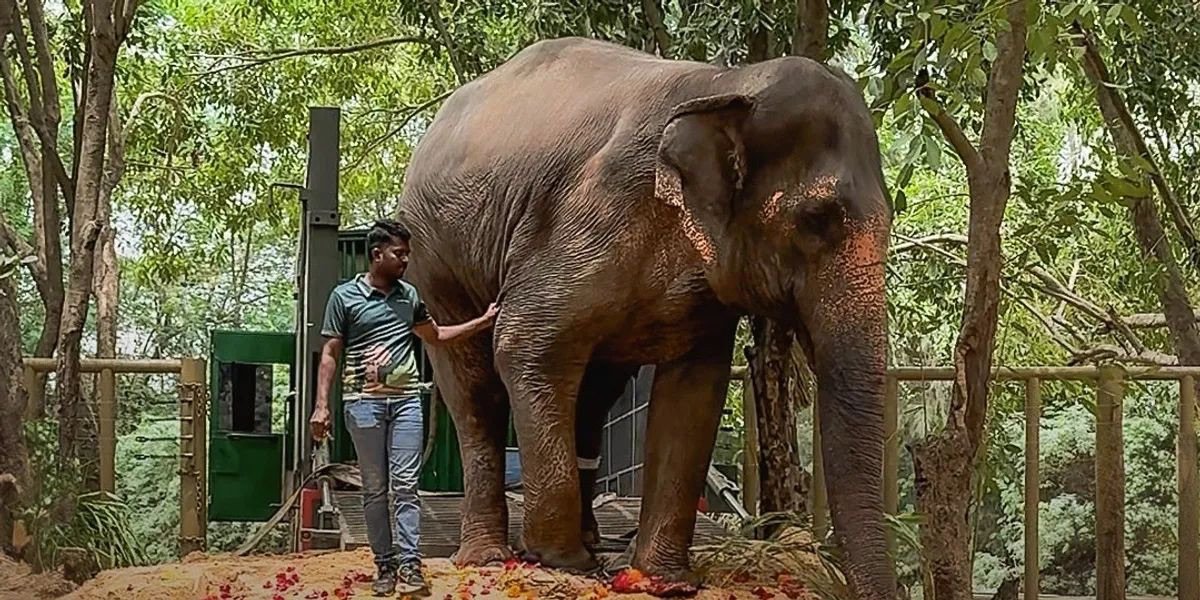For years, New Delhi has backed authoritarian leaders in neighboring countries under the guise of promoting “democracy,” provided they remained aligned with India’s geopolitical interests.
Sheikh Khalilur Rahman:
India’s National Security Adviser Ajit Doval has made a contentious remark blaming Bangladesh’s weak administrative structure for the fall of fascist Sheikh Hasina regime, while tactfully avoiding any reference to New Delhi’s continued support for three controversial elections that kept the authoritarian leader in power.
Speaking on 31 October at an event marking India’s Rashtriya Ekta Diwas (National Unity Day), Doval said, “A weak governance structure often becomes the reason behind a government’s downfall. In several South Asian countries, including Bangladesh, Nepal and Sri Lanka, informal regime changes have occurred due to such administrative weaknesses.”
Yet he made no mention of the Generation Z–led youth uprising that triggered Hasina’s fall. For years, New Delhi has backed authoritarian leaders in neighbouring countries under the guise of promoting “democracy,” provided they remained aligned with India’s geopolitical interests. The Modi administration’s trusted aide did not acknowledge how this policy alienated ordinary citizens across the region and fuelled growing anti-India sentiment.
Doval’s explanation attributes Hasina’s downfall to fragile governance, but in reality, her regime had turned Bangladesh’s administrative machinery into a one-party apparatus entirely under her control. Law enforcement, security agencies, constitutional bodies and financial institutions were all run by loyalists who upheld her autocratic rule. Delhi continued to support this fascist-style regime even as it trampled on citizens’ voting rights and committed gross human rights violations through enforced disappearances, extrajudicial and judicial killings.
At the time, India insisted that Bangladesh’s elections were an “internal matter.” Yet, ahead of the 2014 one-sided election — boycotted by the opposition and producing over 150 unopposed MPs — Delhi dispatched its foreign secretary Sujatha Singh to Dhaka. On 4 December 2013, Singh met with then–Jatiyo Party chief HM Ershad, reportedly to persuade him to join the election under the pretext of preventing the rise of “anti-democratic forces.” When Ershad initially resisted, he was eventually coerced into participating through “special arrangements.”
Following Hasina’s downfall and fled to India, New Delhi began publicly advocating for a “free, fair and inclusive” election in Bangladesh. Indian Prime Minister Narendra Modi’s meeting with Chief Adviser Professor Muhammad Yunus, the Indian foreign secretary’s visit to Dhaka, regular press briefings from India’s Ministry of External Affairs and a recent Delhi trip by a faction of Bangladeshi journalists, all underscored this new line of messaging.
However, Doval made no reference to the fact that Hasina ultimately fell as a dictator. Analysts sympathetic to Bangladesh’s democratic aspirations point out that her downfall through the July mass uprising came as a result of her arrogance, stubbornness and overconfidence; her regime’s record of enforced disappearances, corruption, widespread money laundering and destruction of political pluralism; her manipulation of the judiciary; and the abolition of the election-time caretaker government system that rendered elections meaningless.
Hasina’s authoritarian rule had completely alienated her from the people. By antagonising the Western democratic nations, she found herself increasingly isolated geopolitically. Determined to remain in power indefinitely, she closed every democratic path to her removal. Ahead of the 2024 election, she told TIME magazine that only her “assassination” could remove her from office. But it was the pro-democracy, pro-Bangladesh masses who ultimately forced her out through a blood-soaked popular uprising.
According to a UN fact-finding mission, over 1,500 people were killed and more than 20,000 lost their eyes or limbs as Hasina’s regime unleashed brutal force against students and citizens — yet even that could not save her from collapse.
Years of repression had fuelled mass resentment. The deprivation of voting rights, endemic corruption, economic stagnation and widespread money laundering all deepened public anger. Politically, Hasina’s Awami League and its 14-party alliance were isolated as nearly every other party had turned against her regime. Even then, Delhi remained firmly on her side.
In geopolitical terms, Hasina’s regime survived three consecutive controversial elections largely because of Indian backing, while maintaining a cautious balancing act with China. Relations with the United States were strained due to human rights abuses and tensions escalated further around the January 7, 2024, parliamentary election. The student-led protests turned the country’s youth and ordinary people decisively against Hasina and her party, leaving them politically isolated. Backed by Delhi, they ended up destroying Bangladesh’s hard-earned democratic legacy. Today, the Awami League faces a ban on political activities and the very survival of the party is under threat — a responsibility Doval chose not to acknowledge.
Observers suggest that Delhi’s recent rhetoric about institutional reform and good governance reflects anxiety that the wave of youth-led movements across neighbouring countries — in Bangladesh, Sri Lanka, Nepal and the Maldives — could soon reach India. The Modi government’s inner circle, including Doval, has begun issuing veiled warnings, recognising that no amount of political or religious “opium” can permanently pacify an increasingly restless and politically aware generation.
Lavishing praise on Modi, Doval remarked, “People today are more aware and more ambitious. Their expectations from the state are much higher.”
Seeing the surge of youthful activism across South Asia, India’s ruling establishment is now emphasising the need to curb institutional corruption and undertake systemic reform. Doval and others have softened their rhetoric on “Akhand Bharat” and are now speaking more about internal good governance.
Sheikh Khalilur Rahman is a pro-Bangladeshi writer and journalist.
***Views expressed in the article are the author’s own




